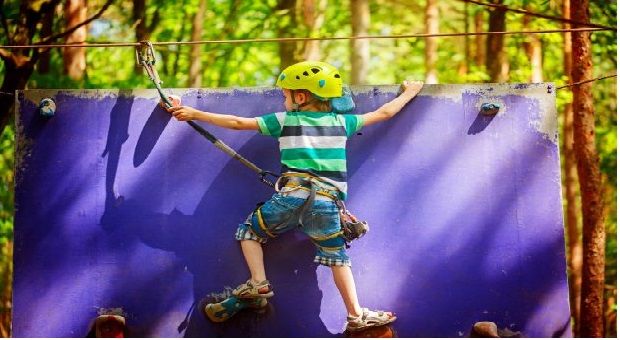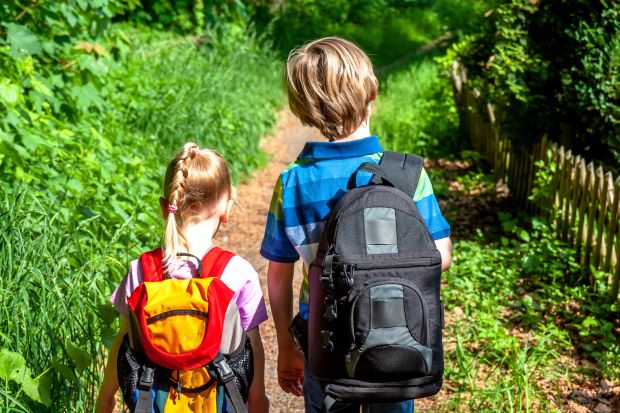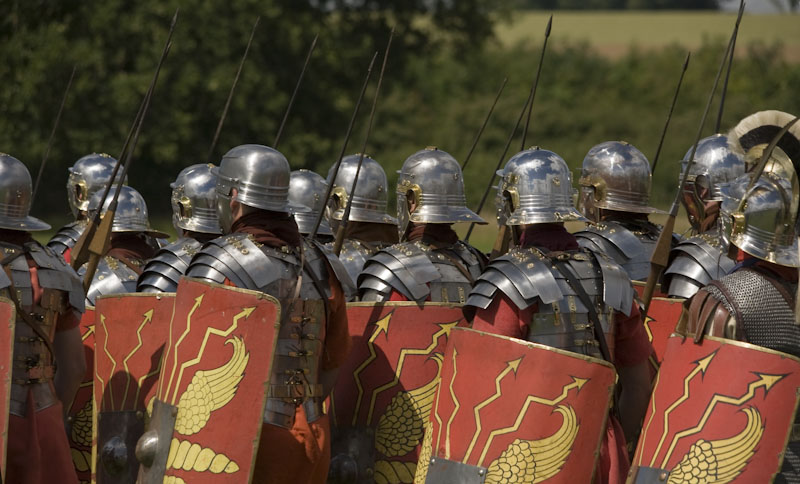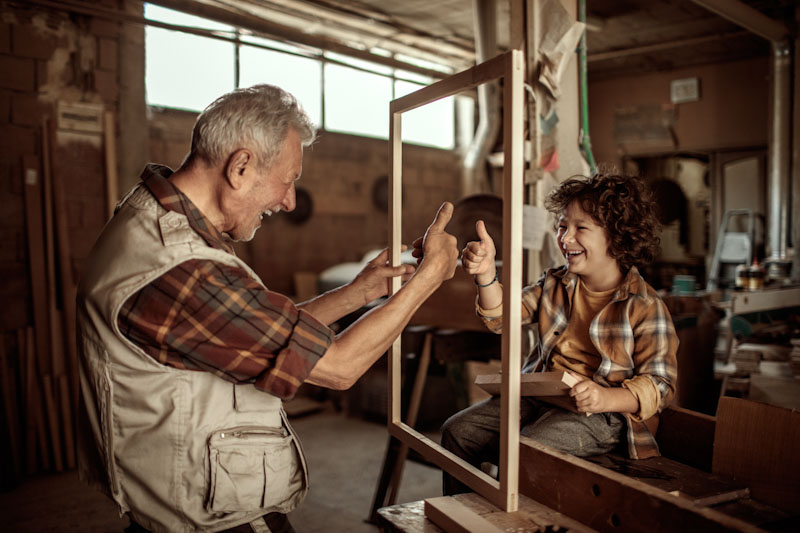Children, by their very nature, aren’t planners. They don’t think about tomorrow, or even ten minutes from now, unless their parents have promised to take them someplace special.
For them, everything is in the here and now. The future is somewhere far off, that they don’t need to worry about… at least not until they are adults.
This characteristic of childhood has caused consternation for many teachers, watching their students wait till the last minute to start a term project or simply not doing their homework because they were busy playing. But it is that homework and those term projects which are part of the process of teaching them to think about the future; most specifically, what they need to do for the future.
For those of us who are preppers, this lack of thought for the future can be a bit disconcerting; but then, we’re the adults, so we should be the ones doing the planning. Nevertheless, we need to teach our children to think like we do, as the day will come when we might not be there to do it for them.
3 Second SEAL Test Will Tell You If You’ll Survive A SHTF Situation
So, how do you teach children how to prepare for potential disasters and emergencies? To start with, they need to gain an understanding of the gravity of the situation they find themselves in. This is easy for children who have lived through times of crisis, because their own suffering will drive the lesson home. But what about the others? The best you can do with them is to get them to see how difficult it is, by getting them to empathize with others who are going through those hard times.
The Problem with Secrets
One of the biggest problems with teaching children to prep or teaching them how to survive is that children can’t keep secrets. Of course, there are a lot of adults that can’t keep a secret either, but we’re not talking about them. If you tell a child anything, and then tell them it is a secret, you may as well buy them time on the radio to broadcast it to the whole city.
With this in mind, the last thing you want to tell your children is that you are teaching them how to be a prepper or that you are teaching them to be a survivalist. Rather, you want to make the things you are teaching them a natural part of your life. That way, it’s not a secret, it’s just the way things are. Even if those things are interesting to your children’s friends, they will be mundane to your children. So there is much less chance of them talking about them.
This doesn’t mean that you can’t teach children to prep. You can. The two most important parts of prepping or survival are attitude and skills. You can teach both to your children, without ever mentioning the word “prepping.”
Teaching the Right Attitude
The single most important thing for any prepper or survivalist to have is the right attitude. What do I mean by that? I guess you could call it a winning attitude; the attitude that you aren’t going to quit until you succeed. It’s the attitude that you are going to overcome and survive, no matter what.
This is so important, that every military manual on survival starts out with a chapter on having the right survival attitude. I don’t care if you’re a soldier operating behind enemy lines or a child lost in the woods at night, you’ve got to have the right attitude to survive.
So, how do you get this attitude? It’s basically the same as someone who doesn’t know how to quit. Good athletes know this, because they have to use it all the time. But they aren’t the only ones. If you want to see someone who is tough when put under pressure, look at a ballerina. They’ll put most football players to shame.
When I was growing up, my parents kept saying the same thing to me, over and over again; “Never say can’t.” I wasn’t allowed to use that phrase. Nor was I allowed its cousin, “I’m trying” (when you’re really not). I was expected to keep working at it until I succeeded, no matter how many times that took.
That was the best thing my parents ever did for me and I can attribute much of my life’s success to it. Where others were ready to quit, I was still pushing on. Sometimes that was easy, but most of the time it wasn’t. But I learned that if I just kept pushing on, I’d eventually break through to victory.
It really doesn’t matter what your children do, whether sports or music or more intellectual activities, you can still teach them this attitude. My wife and I homeschooled our children, giving us the opportunity to instill it in them as well. We never accepted half-done work or poorly done work from them. We insisted that it has to be done right. If that meant that they had to do it ten times to get it right, then they did it ten times. Eventually they learned it was better to push through and get it right the first time.
In a very real sense, survival is the ultimate test of life. You have to push through and get it right the first time. But it’s the pushing, more than anything else, that will ensure that you make it through. Your children need to learn to push, and keep pushing, until they break through.
Teaching the Right Skills
Teaching your children survival skills is actually easier than teaching them a survival attitude, especially for those of us who practice those skills in our day-to-day life.
One part of prepping is the actual preparation of the necessary tools and supplies to survive. This part can include many individual skills, such as gardening, canning, raising chickens and making beef jerky. Whatever activities you do, as part of preparing to survive a disaster are valuable prepping skills for your children to know.
All you have to do, to teach those skills to your children, is to have them do them alongside you. That’s the natural way for children to learn skills anyway. Be sure to explain to them what you are doing and why you are doing it, so that they will understand what you are doing; that’s as important as knowing how to do it. As they grow older, give them more and more responsibilities in those tasks, until they reach the point where they can do them on their own.
The other part of “skills” is teaching your children survival skills. These can be a little harder to teach, just because the opportunities don’t regularly present themselves. But that doesn’t mean that you can’t teach them. Rather, you can. You just need to create the right opportunities.
Some of these skills, such as shooting (whether gun or bow) are interesting enough that most children will want to learn them anyway. All you have to do is create the opportunity. If you shoot, teach them as well. If you fish, teach them. Any skill that you use, which you would consider a survival skill, is something that you should pass on.
Camping is a great way of teaching survival skills. Many of the skills we consider necessary for survival are actually bushcraft skills. So they fit in nicely with family camping trips, as long as you go somewhere where you can find woods, streams and hills. Take the time on these trips to leave your campsite behind and go out in the woods to build a shelter, make a snare or track animals.
Prepare them for the Now
Children should really start learning about survival before they even enter kindergarten. If you think about it, you actually start teaching them long before that. Teaching a child not to touch a hot stove is a survival skill, just like teaching them not to drink from a mud puddle is. The only thing with little children, is that you have to keep the instruction simple.
If you take your children camping, fishing or hiking, you want to give them some basic survival instructions. There’s always the chance that they will wander off when you turn your head. So you want to be sure that they know what to do if they wander off.
To start with, buy them a good whistle and put it on a lanyard. Any time you go out in the wild, they need to be wearing that whistle. Teach them how to use it to call for help, blowing three blasts together, as loud as they can, in the international distress signal. That will help them get rescued, if not by you, then by park rangers or other rescue personnel.
They’ll need someplace to spend the night, if they are separated that long, so teach them to find the biggest Christmas tree they can and crawl under it. Show them that there is usually a space under the tree, because the branches from a pine tree grow straight out from the trunk. So on large trees, as they sag towards the ground, they leave a space, which makes an ideal shelter.
Finally, get your children used to carrying a pack with some water, snacks and a rain poncho. This shouldn’t be difficult, as children seem to have an affinity for backpacks anyway. Besides, most of them carry one to school every day, so they’re used to it. Carrying that pack and their whistle, along with knowing where to find shelter, will help your children to survive, while you and others are looking for them.










